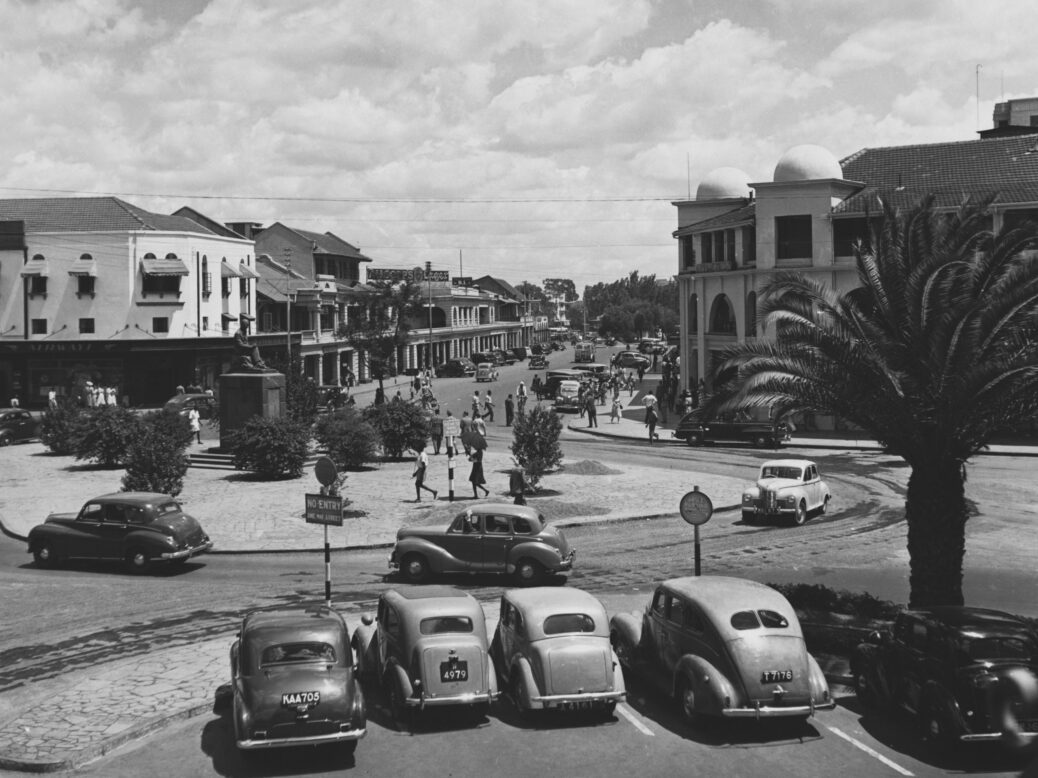
When Fitz de Souza walked into the courtroom in Kapenguria in 1953, the verdict of the trial had already been decided. The 23-year-old lawyer’s six clients faced charges of organising a secret society with the aim of overthrowing British rule in Kenya. The judge had been paid by the government to ensure the outcome and the trial was taking place in a remote town, far away from public and press scrutiny. When the sentence was handed down the judge gave the “Kapenguria Six” the maximum penalty of seven years hard labour. Four of the men would go on to become MPs and one, Jomo Kenyatta, to become president of an independent Kenya.
Lawyers and politicians often score low in surveys of public trust across the world. But earlier this year, when Fitz de Souza passed away in London, he was remembered with admiration by friends and colleagues – both for his contribution to the fight for Kenyan independence, and for his later role as a member of parliament.
The journalist Hilary Ng’weno featured De Souza in his 2009 documentary film, Makers of a Nation. And when the politician’s memoirs were published in 2019, the revelations he had held onto for decades were covered in detail by the Kenyan press. A reviewer in the Kenyan Star said he was left with a “huge appreciation of the sacrifices” that nationalists such as de Souza had made. Cyprian Fernandes, a young parliamentary reporter in 1963, wrote in the Daily Nation that De Souza was “articulate, quietly studious, legally precise, the Solomon of all things parliamentary, and a brilliant lawyer at that”.
[See also: Conflict in Tigray is plunging Ethiopia’s ethnic federalism into crisis]
In the 1950s, De Souza, who was of Indian origin, was part of a small, but radical, group of Asians who acted as lawyers for the tens of thousands of Africans arrested, detained and tortured by the colonial authorities. He was also an activist in his own right, organising campaigns against racial segregation and building support for the independence cause in Kenya’s relatively wealthy Asian community.
But it was the British response to the independence movement that propelled him even further into a position of leadership. When the future first president of Kenya, Jomo Kenyatta, was arrested in 1952 with over 100 other independence leaders and activists, De Souza joined the governing committee of Kenyatta’s Kenyan African Union. This was at no insignificant personal risk. During Operation Anvil two years later, a warrant was issued for De Souza’s arrest and he briefly fled over the border to Uganda while, according to his memoirs, the British rounded up the entire African population of Nairobi and men between 16 and 35 in camps. Any non-European could be shot on sight after curfew.
On Kenyatta’s release in 1961, de Souza was one of few non-whites to be elected to Kenya’s legislative council in the colonial parliament, and then accompanied Kenyatta to independence negotiations in Britain as his chief legal adviser. De Souza was in his element here, bringing his intellectual and legal skills to bear on the challenges of independence.
[See also: End Sars: Why Nigerians are protesting the hated police unit]
In his memoirs he recalled working to find compromise between religious, racial, tribal and political factions, including a significant European settler community who had appropriated the best land in the country. The biggest rift was between the centralising KANU (his party) and the decentralist KADU, “trying to bring the two sides together was a tricky business and there was stubborn resistance,” he wrote. There were also internal tensions, De Souza said that Kenyatta encouraged him to sit on his right hand side during the conference, and to answer any questions rather than defer to the two men who were seen as Kenyatta’s likely successors, Tom Mboya (sat to De Souza’s right) and Oginga Odinga (sat behind).
Judith Heyer, a development economist who lived in Kenya from the early 1960s to the mid-1970s and married one of Fitz’s closest friends, told me that while he was known for his diplomatic skills, he was also independent and had “strong positions” on issues, actively speaking to people across the political spectrum and making relationships work. According to professor David Anderson, historian and author of History of the Hanged, “he was never in the foreground, always in background, yet he was a very good fixer”.
[See also: Why repression in Zimbabwe worries South Africa]
Yet political splits quickly formed after Independence between the left and right and along tribal lines, with the vexed question of land distribution often at the heart of divisions. President Kenyatta and Tom Mboya, were firmly on the right while vice-president Oginga Odinga and Pio Gama Pinto, with whom De Souza had worked closely in the 1950s, were on the left.
The violent deaths of Pinto in 1965 and Mboya in 1969 led de Souza to walk away from his political career. In 1970, he stepped down as an MP and never returned to formal politics. His daughter Veena told me that she believes he missed the intellectual discussion, but not the sense of fear: “You couldn’t say your views openly and I don’t think he wanted to be a part of politics when you couldn’t say what you wanted.”
Fitz de Souza never stopped loving Kenya and in his memoirs concluded that there was so much more to the country than political intrigue, corruption and violence. In the forward to the same book, Hilary Ng’weno noted De Souza could have had “ministries or tracts of land” but wanted more than material wealth, adding that he represented a “vanished world of optimism and idealism”.






